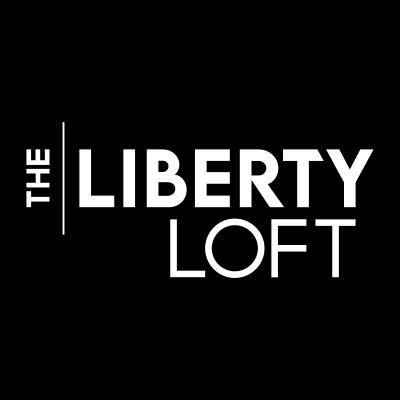



Ayaan Hirsi Ali is a remarkable woman.
As a teenager in Kenya, she was a member of the Muslim Brotherhood, which founder Hamas. She then rejected radical Islam and became an ardent atheist and intellectual – called by Christopher Hitchens the most important scholar of the movement from Africa. She moved to America where she continued writing books and speaking, and recently became a Christian.
She finds herself, at this moment in history, in the midst of controversy as the world is gripped by large-scale demonstrations worldwide in favor of Hamas, following its brutal attacks on Israel.
“I was a member of the Muslim Brotherhood, I believed in some of these things, some of these things that people were saying,” Ali says now. “I took part in these protests, but I evolved, I changed, grew.”
In fact, in 2002, she wrote a paper entitled, “Why I am Not a Christian.”
Ali wrote earlier this month: “It did not cross my mind, as I read it, that one day … I would be compelled to write an essay with precisely the opposite title.”
The year before, she had publicly condemned the terrorist attacks of Sept. 11.
“They had done it in the name of my religion, Islam,” she writes. “I was a Muslim then, although not a practicing one. If I truly condemned their actions, then where did that leave me? The underlying principle that justified the attacks was religious, after all: the idea of Jihad or Holy War against the infidels. Was it possible for me, as for many members of the Muslim community, simply to distance myself from the action and its horrific results? At the time, there were many eminent leaders in the West – politicians, scholars, journalists, and other experts – who insisted that the terrorists were motivated by reasons other than the ones they and their leader Osama bin Laden had articulated so clearly. So Islam had an alibi. This excuse-making was not only condescending towards Muslims. It also gave many Westerners a chance to retreat into denial. Blaming the errors of U.S. foreign policy was easier than contemplating the possibility that we were confronted with a religious war. We have seen a similar tendency in the past five weeks, as millions of people sympathetic to the plight of Gazans seek to rationalize the October 7 terrorist attacks as a justified response to the policies of the Israeli government.”
Continued Ali, “I found my cognitive dissonance easing. It was a relief to adopt an attitude of skepticism towards religious doctrine, discard my faith in God and declare that no such entity existed. Best of all, I could reject the existence of hell and the danger of everlasting punishment.”
It was a profound statement for a young woman who had become an atheist 20 years before – and who had left the Muslim Brotherhood 15 years earlier in Kenya.
“The Brotherhood preachers left nothing to the imagination,” she recalled. “They gave us a choice. Strive to live by the Prophet’s manual and reap the glorious rewards in the hereafter. On this earth, meanwhile, the greatest achievement possible was to die as a martyr for the sake of Allah.”
What changed for her to call herself a Christian?
“Part of the answer is global. Western civilization is under threat from three different but related forces: the resurgence of great-power authoritarianism and expansionism in the forms of the Chinese Communist Party and Vladimir Putin’s Russia; the rise of global Islamism, which threatens to mobilize a vast population against the West; and the viral spread of woke ideology, which is eating into the moral fiber of the next generation,” she said. “We endeavor to fend off these threats with modern, secular tools: military, economic, diplomatic and technological efforts to defeat, bribe, persuade, appease or surveil. And yet, with every round of conflict, we find ourselves losing ground. We are either running out of money, with our national debt in the tens of trillions of dollars, or we are losing our lead in the technological race with China. But we can’t fight off these formidable forces unless we can answer the question: what is it that unites us? The response that ‘God is dead!’ seems insufficient. So, too, does the attempt to find solace in ‘the rules-based liberal international order.’ The only credible answer, I believe, lies in our desire to uphold the legacy of the Judeo-Christian tradition.”
Praise God!
But there’s more.
“To me, this freedom of conscience and speech is perhaps the greatest benefit of Western civilization,” Ali writes. “It does not come naturally to man. It is the product of centuries of debate within Jewish and Christian communities. It was these debates that advanced science and reason, diminished cruelty, suppressed superstitions, and built institutions to order and protect life, while guaranteeing freedom to as many people as possible. Unlike Islam, Christianity outgrew its dogmatic stage. It became increasingly clear that Christ’s teaching implied not only a circumscribed role for religion as something separate from politics. It also implied compassion for the sinner and humility for the believer.”
Christianity has it all, she now proclaims.
“That is why I no longer consider myself a Muslim apostate, but a lapsed atheist,” she writes now. “Of course, I still have a great deal to learn about Christianity. I discover a little more at church each Sunday. But I have recognized, in my own long journey through a wilderness of fear and self-doubt, that there is a better way to manage the challenges of existence than either Islam or unbelief had to offer.”
This article was originally published by the WND News Center.
This post originally appeared on WND News Center.
